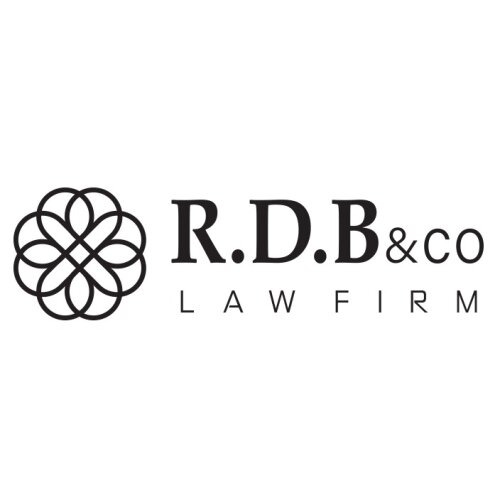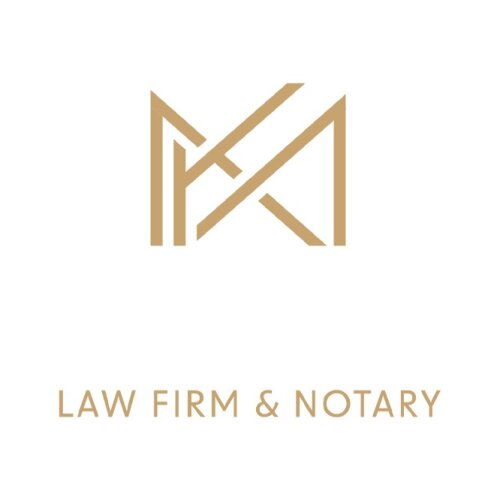Best Probate Lawyers in Petaẖ Tiqwa
Share your needs with us, get contacted by law firms.
Free. Takes 2 min.
List of the best lawyers in Petaẖ Tiqwa, Israel
About Probate Law in Petaẖ Tiqwa, Israel
Probate law in Petaẖ Tiqwa, Israel, governs the process of administering the estate of a deceased person. This includes distributing assets to beneficiaries, paying off any debts, and ensuring that the deceased's final wishes are respected as much as possible. The process is overseen by the courts to ensure legality and fairness. Due to the complexity of probate laws and the various steps involved, it is often beneficial to seek legal counsel to navigate this area effectively.
Why You May Need a Lawyer
There are several common situations where legal help in probate may be necessary:
- Validating a Will: Ensuring the Will of the deceased is valid and legally binding.
- Disputes Among Beneficiaries: Resolving conflicts that arise among the beneficiaries regarding the distribution of assets.
- Complex Estates: Dealing with estates that have numerous assets, properties, or debts can be very complicated.
- Tax Issues: Addressing tax concerns related to the inheritance and ensuring compliance with local tax regulations.
- Ensuring Legal Compliance: Making sure all legal requirements are met during the probate process to avoid future liabilities.
Local Laws Overview
The probate process in Israel is influenced by unique local laws and regulations:
- Israeli law requires that any person over the age of 18 can make a Will. The Will must be written, signed, and witnessed to be legally binding.
- In the absence of a Will, the estate is distributed according to the Israeli Succession Law, which determines the heirs based on familial relationships.
- Probate applications can be filed with the Succession Registrar or the Family Court in Petaẖ Tiqwa.
- An inheritance order (in cases without a Will) or probate order (in cases with a Will) is usually necessary to legitimize the administration of the estate.
- Executors or administrators are appointed to manage the estate, ensuring debts are paid, and assets are distributed lawfully.
Frequently Asked Questions
1. What is probate?
Probate is the legal process of administering and distributing the estate of a deceased person, ensuring that their debts are paid, and their assets are distributed according to their Will or, if there is no Will, according to the law.
2. What happens if there is no Will?
If there is no Will, the estate is distributed according to the Israeli Succession Law, which designates heirs based on familial relationships.
3. How long does the probate process take?
The probate process can vary in duration, generally taking several months to over a year, depending on the complexity and any potential disputes.
4. Can a Will be contested?
Yes, a Will can be contested on several grounds, including questions of the deceased's mental capacity at the time of making the Will, undue influence, or improper execution of the Will.
5. What are the responsibilities of an executor?
The executor is responsible for managing the estate, ensuring debts are paid, and distributing assets as specified in the Will. This can involve significant administrative and legal work.
6. Can debts be inherited?
Debts themselves are not inherited, but the estate must pay off any debts before assets are distributed to the beneficiaries. If the estate's assets are insufficient to cover the debts, the remaining debts typically do not pass to the heirs.
7. Is probate always necessary?
Probate is generally necessary to deal with the deceased's assets, but certain assets can be transferred outside of probate, such as jointly-owned property or assets with designated beneficiaries.
8. How much does probate cost?
The cost of probate can vary widely, including court fees, legal fees, and other administrative costs. Consulting with a lawyer can help estimate and manage these expenses.
9. What documents are needed for probate?
The essential documents for probate typically include the death certificate, the Will, an inventory of the estate's assets and liabilities, and any relevant court petitions or forms.
10. Can an executor be removed?
Yes, an executor can be removed by the court if they are not fulfilling their duties appropriately, such as mishandling the estate or not acting in the best interests of the beneficiaries.
Additional Resources
For additional support and information regarding probate in Petaẖ Tiqwa, consider reaching out to the following:
- The Israel Ministry of Justice - Succession Registrar
- Local Family Courts of Petaẖ Tiqwa
- Legal aid clinics and services offered by local universities or non-profit organizations
- Private legal practitioners specializing in probate law
Next Steps
If you find yourself in need of legal assistance in the area of probate, follow these steps:
- Consult a Specialist: Seek out a lawyer specializing in probate law to get a comprehensive understanding of your situation.
- Gather Documents: Collect all necessary documents, including the Will, death certificate, and any relevant financial information.
- File the Required Petitions: Work with your lawyer to file the necessary probate petitions with the Succession Registrar or Family Court.
- Manage the Estate: Ensure that the appointed executor or administrator manages the estate according to legal requirements.
- Communicate Clearly: Maintain open communication with beneficiaries and other relevant parties to minimize conflicts and ensure transparency.
Taking these steps can help ensure that the probate process is conducted efficiently and in accordance with the law, providing peace of mind during a challenging time.
Lawzana helps you find the best lawyers and law firms in Petaẖ Tiqwa through a curated and pre-screened list of qualified legal professionals. Our platform offers rankings and detailed profiles of attorneys and law firms, allowing you to compare based on practice areas, including Probate, experience, and client feedback.
Each profile includes a description of the firm's areas of practice, client reviews, team members and partners, year of establishment, spoken languages, office locations, contact information, social media presence, and any published articles or resources. Most firms on our platform speak English and are experienced in both local and international legal matters.
Get a quote from top-rated law firms in Petaẖ Tiqwa, Israel — quickly, securely, and without unnecessary hassle.
Disclaimer:
The information provided on this page is for general informational purposes only and does not constitute legal advice. While we strive to ensure the accuracy and relevance of the content, legal information may change over time, and interpretations of the law can vary. You should always consult with a qualified legal professional for advice specific to your situation.
We disclaim all liability for actions taken or not taken based on the content of this page. If you believe any information is incorrect or outdated, please contact us, and we will review and update it where appropriate.











